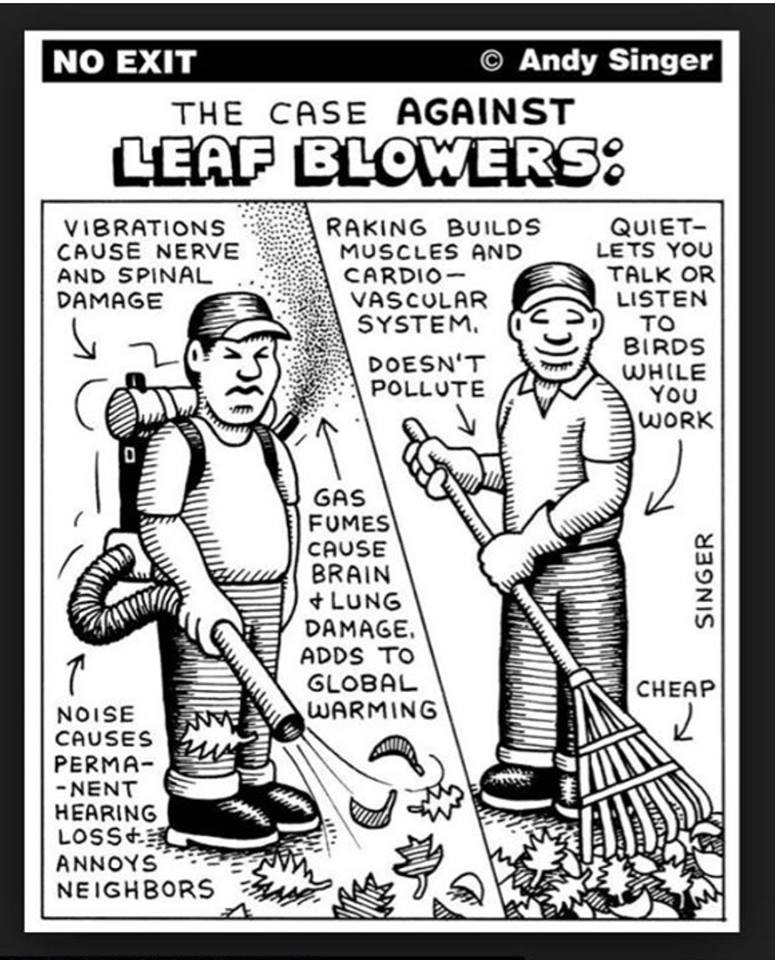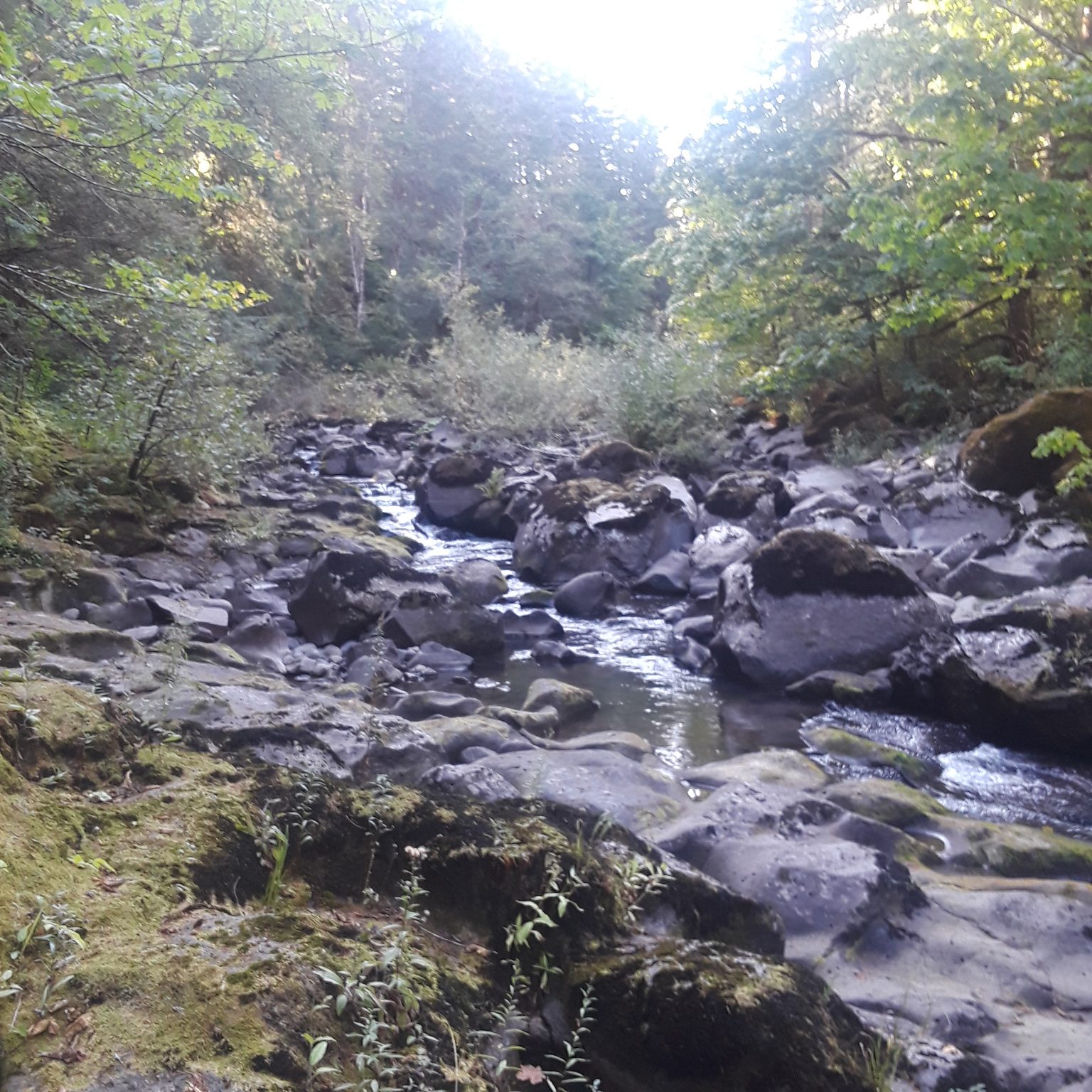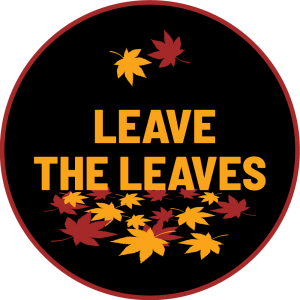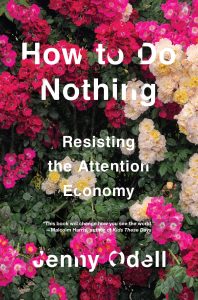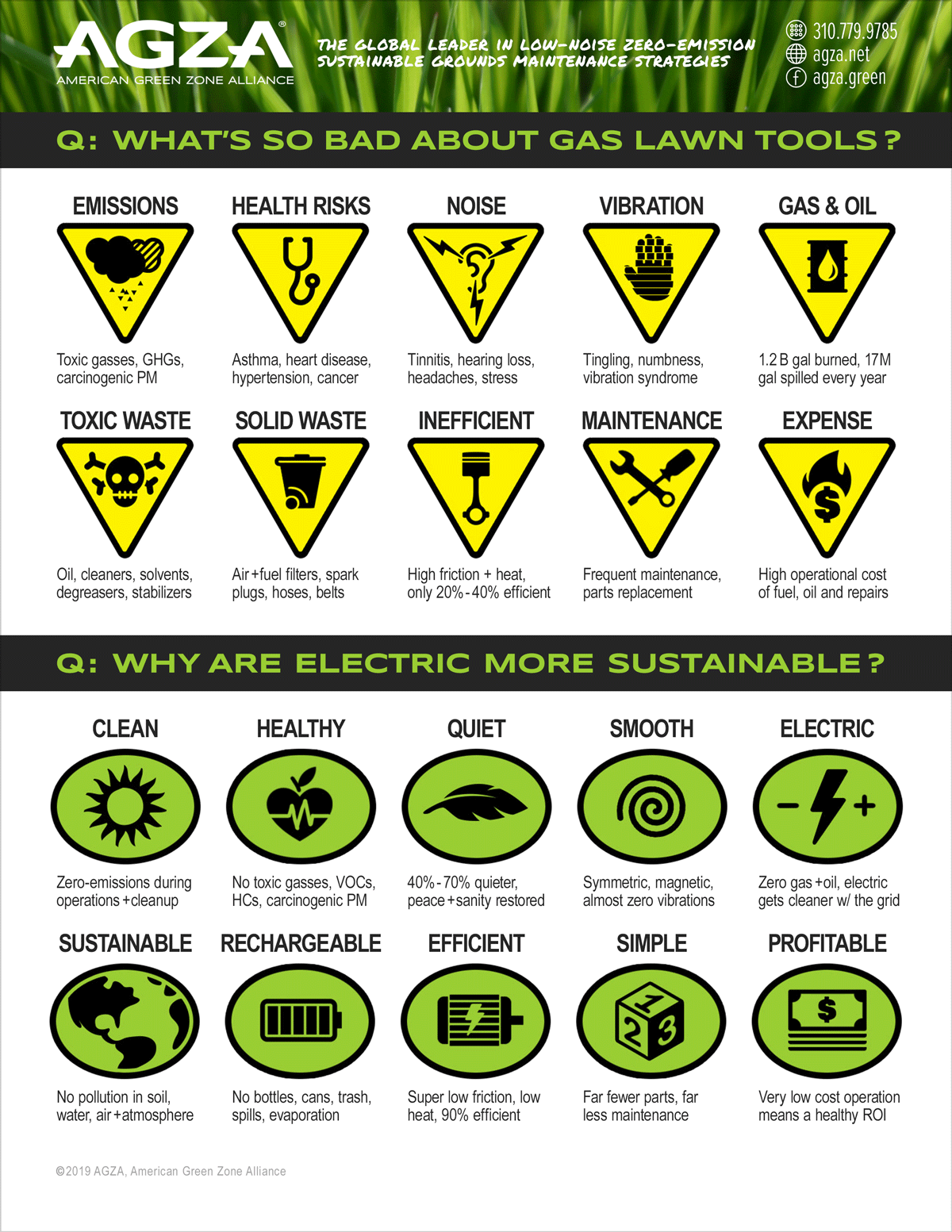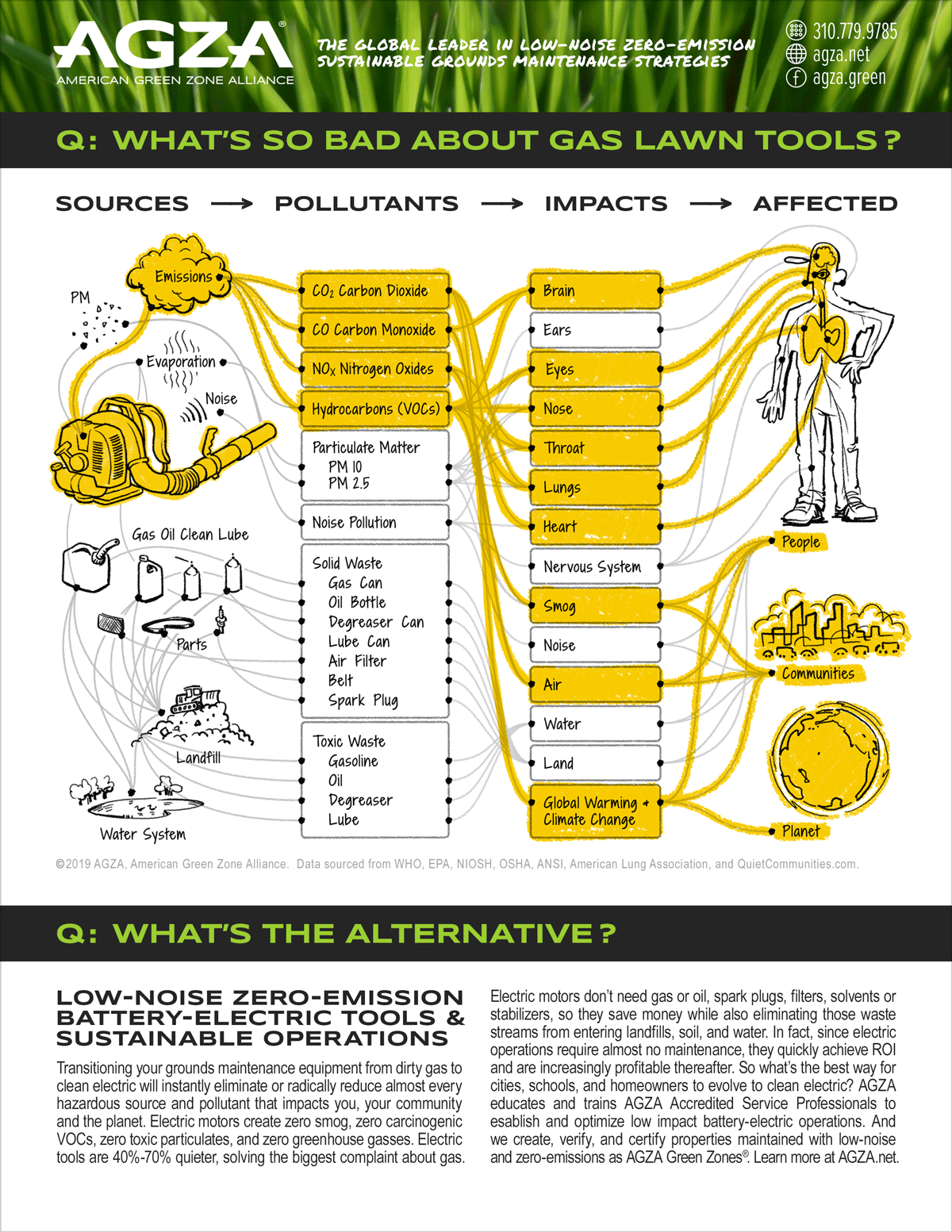Organize your community to ban gas-powered leaf blowers:
Gas-powered leaf-blowers (GLBs) are noisy and polluting tools. There are better alternatives such as electric leaf blowers or rakes and brooms. Here are some ways our local Portland group, Quiet Clean PDX has gone about encouraging people and companies to switch away from using GLBs so we can have a quieter and less polluted urban environment. Feel free to use any of these methods where you live (for this issue or another you care about).
- Find a group of people who want to help you change things and meet regularly. This is how we got started – having food and drink available is a good idea. “A meeting without eating is cheating” as they say.
- Use Nextdoor.com to effect change in your area.
- Use Facebook and other social media to get the word out widely.
- Get a newsletter going so you can reach those interested in your efforts – send it regularly – please sign up here for our newsletter
- Build an awesome website with a group interested in this issue
- Create an online petition (or 2 or 3) and post a link to it on your website. (this is also a way to build your email list/newsletter subscribers)
- Develop a list of local landscape companies that don’t use gas-powered leaf blowers. Post it on your website and promote it widely.
- Create door hangers and postcards that residents can use to encourage their neighbors to change what they’re doing
- Create a fun video explaining the issue
- Lobby for and help draft legislation to ban or restrict GLBs. Use all of the above methods to get the word out as you do this.
- Host a periodic Zoom meeting with newsletter subscribers and others to discuss how things are going and ideas for action.
- Launch a yard sign campaign.
- Get op-eds, letters to the editor, and news or feature articles in local media.
- Post podcasts, and videos on social media – all are good! Set up interviews on local radio stations and podcasts.
- Gather organizational supporters like environmental groups and neighborhood associations.
- Connect with other groups around the country who are involved in similar work. There are also some great Facebook groups that can provide connections to people close to you that you can organize with.
- Example Op-Ed:
- Philadelphia Inquirer: Gas leaf blowers are terrible and should be banned. Seth Lieberman & Anne Dicker 11/18/2022
- https://www.inquirer.com/opinion/commentary/leaf-blower-ban-philadelphia-gas-air-quality-dangers-20221118.html
- Example Letter-to-Editor
- Take action to cut the noise (Earth Day letter) – Judy Walton/Ted Rueter
- https://www.oregonlive.com/opinion/2021/04/readers-respond-take-action-to-cut-the-noise.html
- Example videos and radio interviews:
- https://www.youtube.com/watch?v=Lf-RxgPTflk&ab_channel=TheAtlantic (James Fallows)
- January 2019 KBOO radio call-in talk show hour with Joe Uris interviewing Michael Hall: https://kboo.fm/media/70715-abe-and-joe-talk-radio-show-012219
Pick one of the above and give it a try. Every action you take is going to move things in the right direction. Find someone to do it with and you’ll have even more success and more fun! Good luck, and thank you! Albert Kaufman – albert@albertideation.com
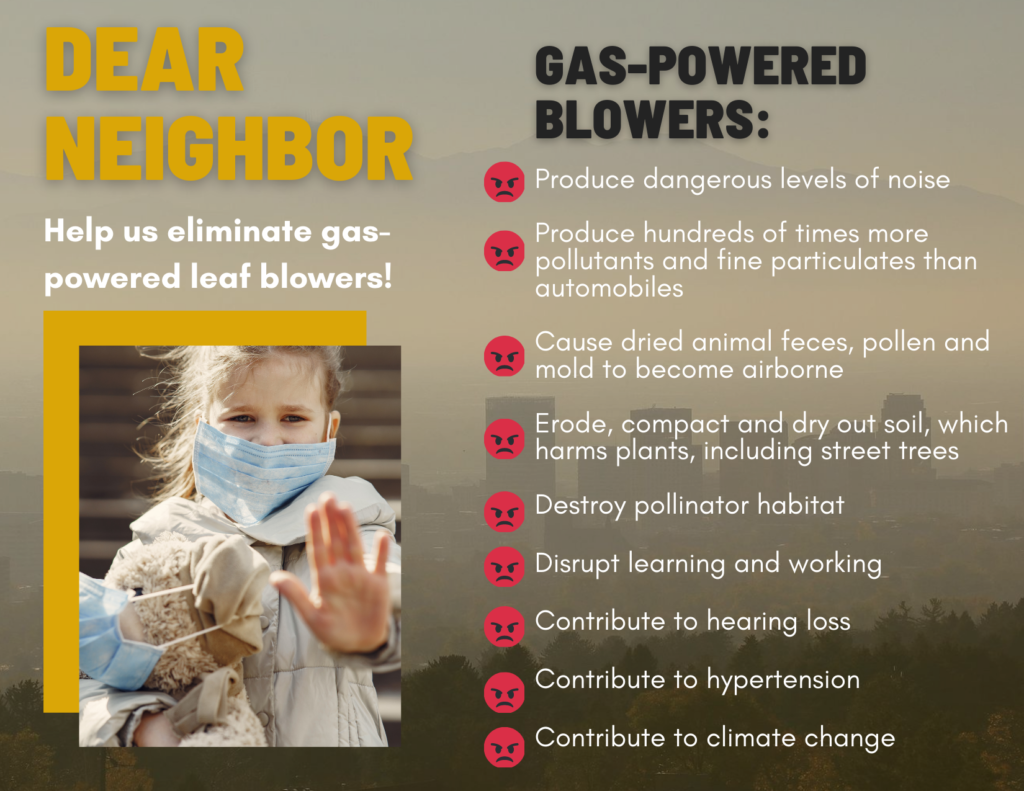
3.13.24 – We passed an ordinance! (still lots of work to do).



